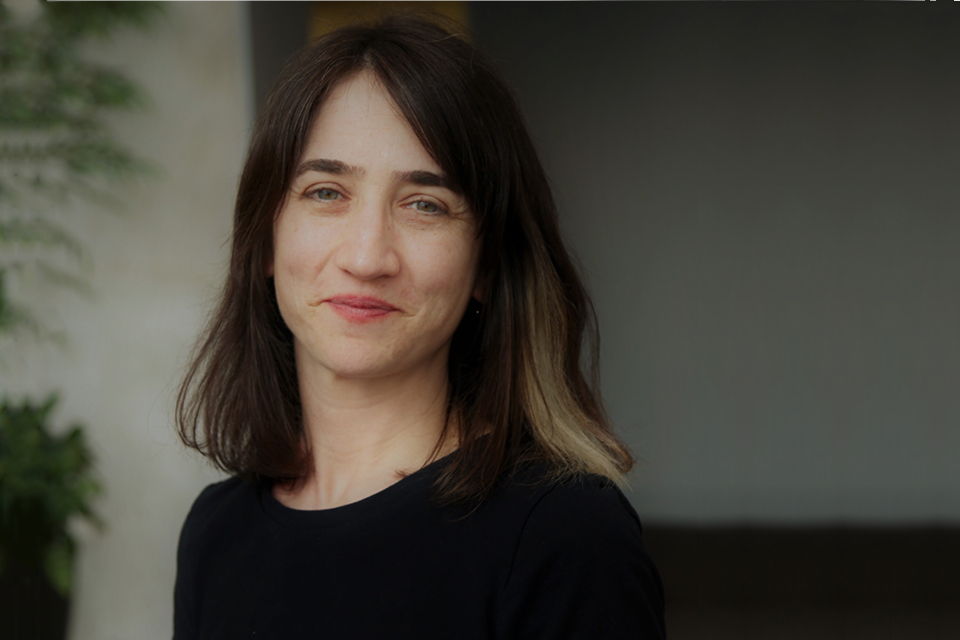Connected PhD Fellow Finds that Underrepresented Minority Students in Boston Public Schools Face Unequal Challenges During Pandemic

Photo Credit: Karen Shih
February 19, 2021
Carey Slaeker | Graduate School of Arts and Sciences
Jennifer LaFleur, a Connected PhD fellow pursuing a doctorate in Sociology and the Heller School’s Social Policy program, used her experience with policy analysis to help lead an examination of survey data provided by students and families in Boston Public Schools (BPS). Under the direction of Professor Derron Wallace, LaFleur provided guidance to a team of graduates and undergraduates who analyzed more than 17,000 responses, focusing specifically on race and inequality in public schools during the COVID-19 pandemic.
In a policy report submitted to Boston Public Schools earlier this fall, the team found that Black and brown families—under-represented in survey responses—were more likely than white parents to report needing assistance with acquiring technology necessary for remote learning. LaFleur recently spoke to us about her experience working on the project as a Connected PhD fellow and the important insights that she learned. You can read more about the project and its conclusions in BrandeisNOW.
Why did you choose to become a Connected PhD fellow?
I was aware of the program and knew that it sought to support doctoral students in their pursuit of professional opportunities, so it seemed like a great fit. This was the first chance I have had at Brandeis to partner with a public agency and to use data to help them inform their work in real-time.
How does your work with BPS relate to your previous experience with policy analysis as a doctoral student in the Heller School and Sociology department?
Working with BPS was the first time at Brandeis that I was able to put my previous work doing policy analysis and program evaluation to work. Specifically, it was a chance to work on a team—which is quite typical in the workplace but something that you see less of in academia. In this sense, it was as close as I've come to really replicating that feeling of a professional project team during my doctoral program.
How did the project enhance your skills or demonstrate your abilities beyond academia?
As an academic, I think that a lot of the work that gets done is very much driven either by our own research agendas or those of collaborators with whom we have become familiar. In this instance, it was an outside group asking for analytic assistance with regard to a very specific set of data and set of questions. This, I believe, made it much more like the work that is done at private research groups where the agenda is often set by a prospective client's RFP [Request for Proposal]. This can be refreshing as it means that the tasks are a bit more discrete and the work scope is driven by someone else.
In what ways did working on this project influence your thinking about your professional development and/or career plans?
The project helped me to believe that there can be great payoffs to working for a client like a public school system. Specifically, many of the intellectual and analytical skills that we nurture in a doctoral program are really quite applicable to a public agency. Really, it's just a matter of having the know-how to translate these skills into a form that is accessible and applicable to the questions public agencies are asking.
You found that families of white students reported less concern about schools reopening than Black and brown families. White families were also overrepresented in the survey responses. What surprised you most when analyzing this data?
What surprised me the most, as a person who has done a great deal of survey research, was the fact that families of white BPS students, despite comprising less than a fifth of the BPS population, made up well over a third of the survey sample. This means that the results, while useful, are not really representative of BPS families overall and the voices of parents of white students may be dominating the conversation that BPS is trying to have with families. While this presents a hurdle to data analysis, it is also an interesting finding in and of itself. There is great value, I believe, in underscoring for BPS how an online survey may not be the best method for gaining feedback from a representative group of parents.
Additionally, I think that the fact that more Black and Latinx families worried that they would need more support if their children were to participate in remote schooling was an important finding.
I understand this research will continue over the coming weeks and months. Will you still be involved?
We are currently considering asking BPS to allow us to conduct additional analyses with the data; however it is unclear if we will have a data use agreement with them that goes beyond the work that has already been completed. If we do draw up another agreement, I do hope to be involved.
Ultimately, what do you hope the impact of this research will be?
I hope that it complicated the narrative for BPS as they sought to make decisions about how to support families during the 2020–21 academic year. This isn't to say I hope it made their work harder, but in some ways I hope that the analyses we conducted demonstrate that there may be more questions than answers regarding how to best support families. This, I believe, can be very generative, even if the immediate impact is unclear.
Do you have any advice for other doctoral students considering a Connected PhD fellowship?
Doctoral students in the social sciences, depending on their backgrounds, may not fully understand how much rich and impactful research happens outside of academic settings. For this reason, I think that the fellowship could be very helpful in expanding their understanding of how their skills might fit into organizations like public agencies, foundations, and private research groups.






